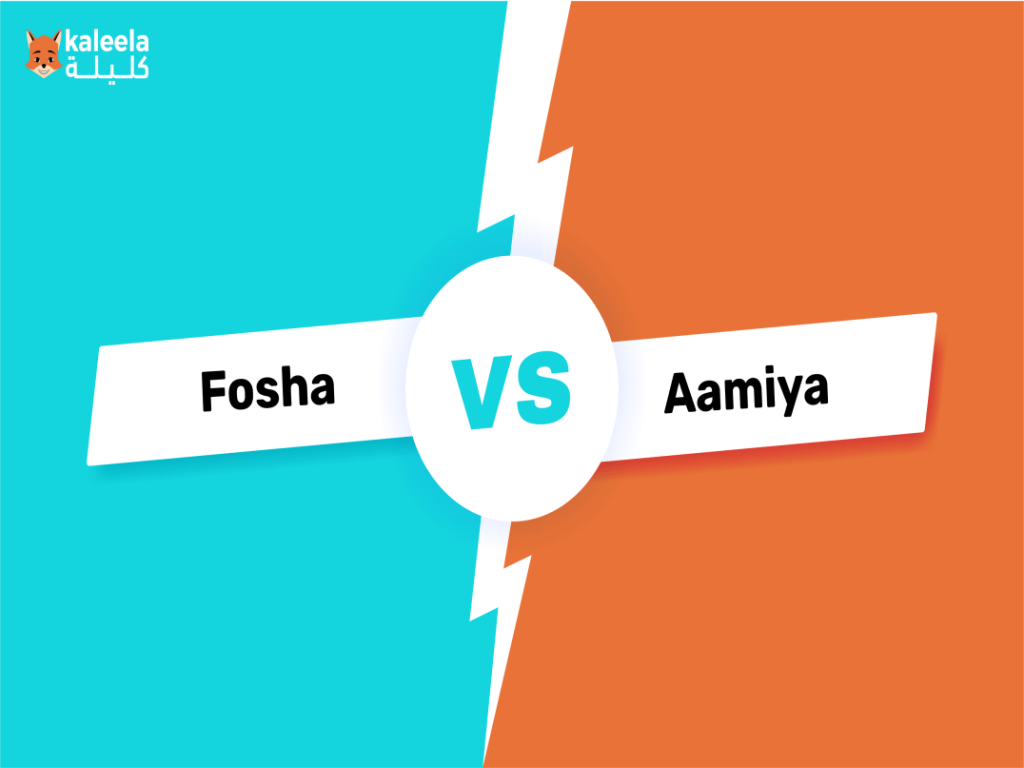Welcome to one of the most important concepts for any Arabic learner! If you’ve ever heard the terms Fusha or Amiya and felt confused, you’re not alone. Understanding the Fusha meaning is the key to unlocking how Arabic works. This article will demystify the difference between these two forms and provide a clear guide to Fusha vs. Amiyah so you can navigate the language with confidence.
Fusha Meaning: Fusha vs. Amiyah
The Arabic language is in a state of what linguists call diglossia, which means two forms of the language are used for different purposes.
- Fusha (فُصْحَى): This is the classical and formal version of Arabic. Its name literally means “the most eloquent.” It is the language of the Quran, poetry, literature, and news. Fusha is standardized and is understood by all educated Arabs.
- Amiyah (عامِّيَّة): This is the colloquial, everyday form of Arabic. The word Amiyah means “common” or “vernacular.” It is the spoken language you hear in homes, on the streets, and in TV shows.
This dual system means that native speakers often use Fusha for reading and writing and Amiyah for talking. The relationship between these two forms is a central part of understanding Arabic formality.
What is the Fusha Meaning and How Is It Used?
The Fusha meaning is “eloquent” or “pure.” It is also known as Modern Standard Arabic (MSA), and it is the official language of 22 Arab countries.
Fusha is used for:
- Written Communication: Books, newspapers, official documents, and academic papers are all written in Fusha.
- Formal Spoken Contexts: News broadcasts, political speeches, and religious sermons use Fusha.
- Education: It is the language of instruction in schools and universities.
Key characteristics of Fusha:
- It has a complex, structured grammar with case endings (vowels at the end of words) that are essential for grammatical function.
- The vocabulary is formal and standardized.
- Pronunciation is consistent across the Arab world.
The Role of Amiyah Arabic
Amiyah is what most people learn first if they are raised in an Arab country. It is the language of daily life, humor, and emotion. Each country has its own distinct dialect of Amiyah, like Egyptian, Levantine, or Gulf.
- Egyptian Amiyah: Known for its widespread use in film and music, making it familiar to many Arabs.
- Levantine Amiyah: Spoken in Syria, Lebanon, Jordan, and Palestine. It’s often praised for its clear and melodic sound.
- Gulf Amiyah: Spoken in the Arabian Peninsula, it has a distinct vocabulary and is phonetically closer to classical Arabic.
The differences between Fusha vs. Amiyah mean that while a speaker of Egyptian Amiyah can understand a news broadcast in Fusha, they would likely struggle to have a conversation with a speaker of Moroccan Amiyah unless they both switch to Fusha.
Navigating Fusha and Amiyah as a Learner
For learners, a good approach is to have a basic understanding of both.
- Start with Fusha: Learning Fusha provides a strong foundation in grammar and vocabulary. It’s the key to reading and writing.
- Add a Dialect: Once you have the basics, choose a dialect (Amiyah) based on your personal or professional goals. This will enable you to have conversations and truly connect with people.
Understanding the difference between Fusha vs. Amiyah is a powerful first step in your Arabic journey. It helps you set realistic goals and choose the right resources for your needs.
Ready to start your journey into this fascinating language? Visit www.kaleela.com and download the Kaleela Arabic learning app today! Our comprehensive lessons are designed to help you navigate both Fusha and the regional dialects with confidence.



